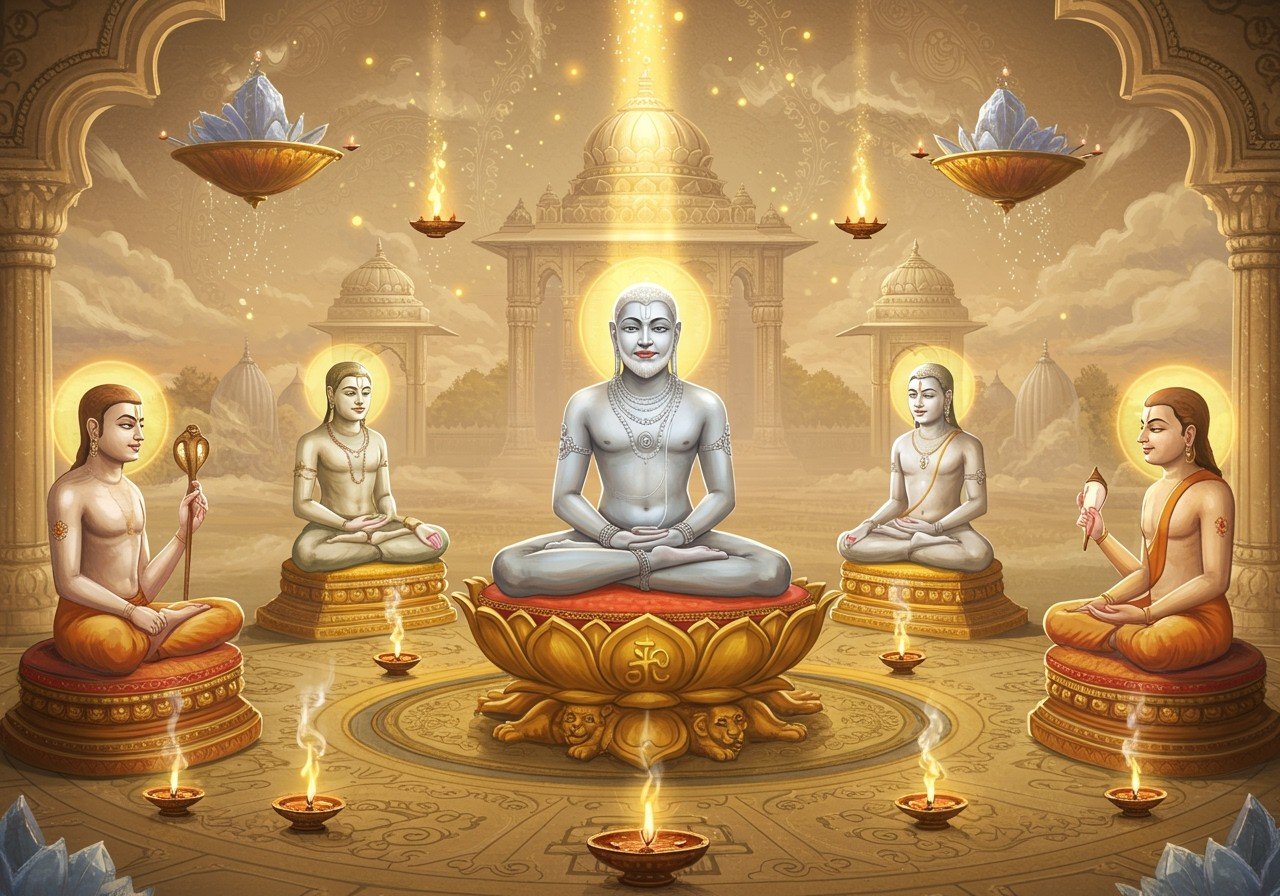
Jainism, an ancient Indian religion, emphasizes non-violence, non-attachment, and self-discipline. Central to its philosophy are the Tirthankaras, enlightened spiritual teachers who guide others towards liberation. This article explores the lives and teachings of the most significant Tirthankaras, providing insights into their contributions and impact on Jainism.
Understanding the Tirthankaras
Tirthankaras, often referred to as “Ford-Makers,” pave the path to spiritual liberation. They are not deities but enlightened beings who have conquered the cycle of birth and death. Jainism recognizes 24 Tirthankaras, each playing a crucial role in the religion’s development.
Significance of Tirthankaras:
- Guiding Lights: Tirthankaras establish the fourfold community of monks, nuns, laymen, and laywomen, providing guidance and support on the spiritual journey. They illuminate the path to liberation, helping followers navigate the complexities of life.
- Embodiments of Virtue: They exemplify virtues like perfect knowledge, vision, conduct, and power, inspiring followers to cultivate these qualities within themselves. Tirthankaras serve as role models, demonstrating the practical application of Jain principles.
Rishabhanatha: The First Tirthankara
Rishabhanatha, also known as Adinatha, is revered as the first Tirthankara. He is credited with significant contributions to human civilization, including the introduction of agriculture, arts, and crafts.
Key Aspects of Rishabhanatha:
- Achieving Omniscience: Through deep meditation, Rishabhanatha attained Kevala Jnana, a state of omniscience. He achieved complete knowledge and understanding of the universe.
- Symbolism and Lineage: Represented by the bull emblem, Rishabhanatha is associated with the Ikshvaku dynasty. His life and teachings are documented in ancient texts like the Rigveda and Bhagavata Purana, highlighting his influence across different traditions.
Mahavira: The 24th Tirthankara
Mahavira, the 24th and last Tirthankara, is the most renowned figure in Jainism. His life, marked by renunciation and a dedicated spiritual quest, culminated in enlightenment. He lived in the 6th century BCE.
Core Teachings of Mahavira:
- Five Vows: Mahavira emphasized the five core vows: non-violence (ahimsa), truthfulness (satya), non-stealing (asteya), celibacy (brahmacharya), and non-possessiveness (aparigraha). These principles form the ethical foundation of Jainism.
- Community and Influence: He organized the Jain community and actively spread Jain principles during his lifetime, interacting with other religious figures like the Buddha. Mahavira’s teachings had a profound impact on the development of Jainism as a distinct religious tradition.
Parshvanatha: The 23rd Tirthankara
Parshvanatha, the 23rd Tirthankara, preached four vows: non-violence, truthfulness, non-stealing, and non-possessiveness. His teachings had a significant influence on Mahavira’s philosophy.
Influence and Symbolism:
- Precursor to Mahavira: Parshvanatha’s emphasis on four vows laid the groundwork for Mahavira’s five vows, demonstrating the evolution of Jain thought. His teachings provided a foundation for later developments in Jain ethics.
- Historical Significance: The snake emblem associated with Parshvanatha, along with legends and archaeological evidence, confirms his historical existence. His life and teachings are documented in various Jain texts, solidifying his place in Jain history.
Conclusion: The Enduring Legacy of the Tirthankaras
The Tirthankaras are revered as beacons of spiritual wisdom in Jainism. Their teachings on non-violence, truthfulness, and self-discipline continue to inspire individuals seeking a life of virtue and inner peace. By honoring their legacy, we can cultivate compassion, respect, and spiritual growth in our own lives.
For those seeking to deepen their understanding of Jainism and incorporate its principles into their daily lives, poojn.in offers a wide selection of resources, including Sanskrit mantras and guides to spiritual practices. You can also explore our collection of high-quality idols and puja items to enhance your spiritual practice.


